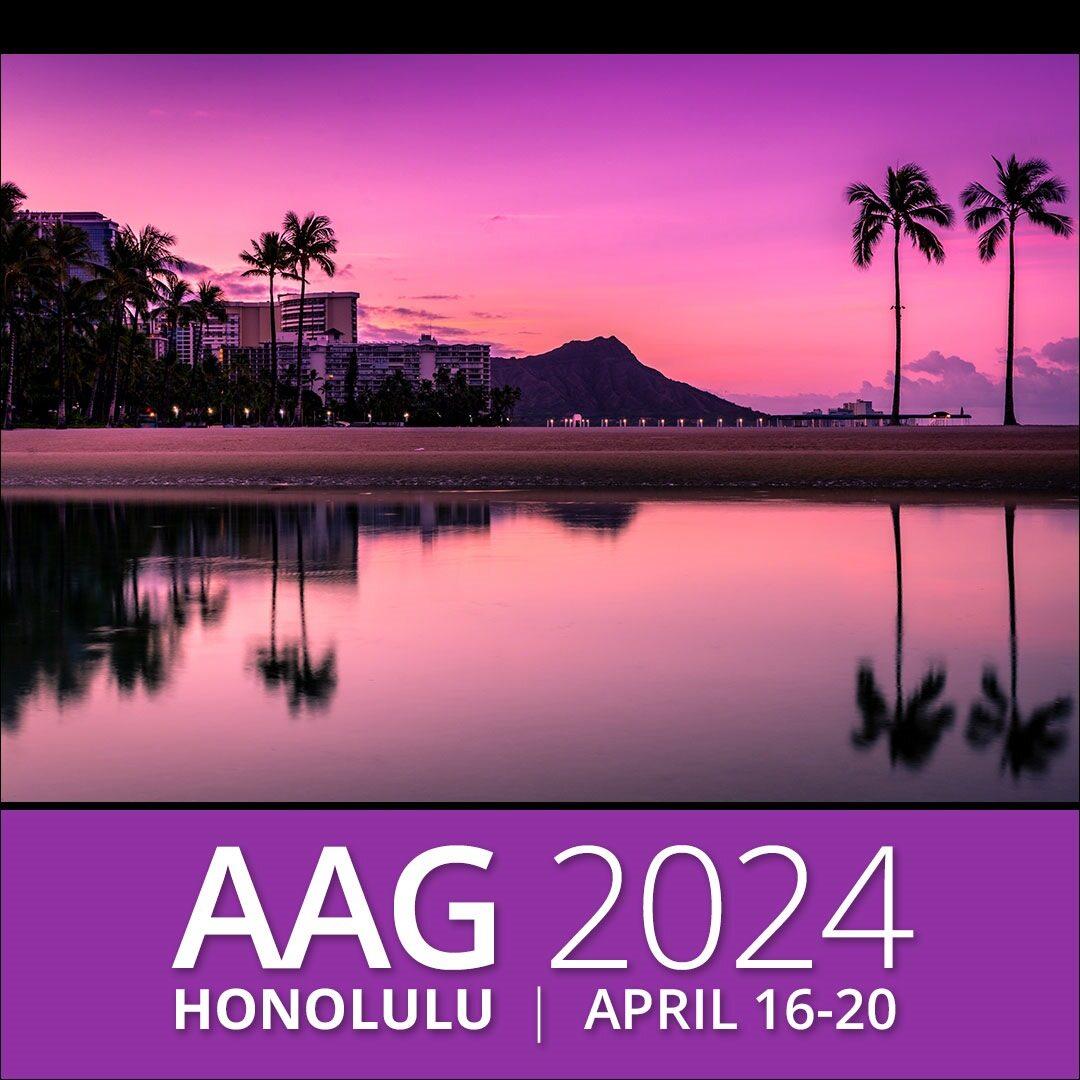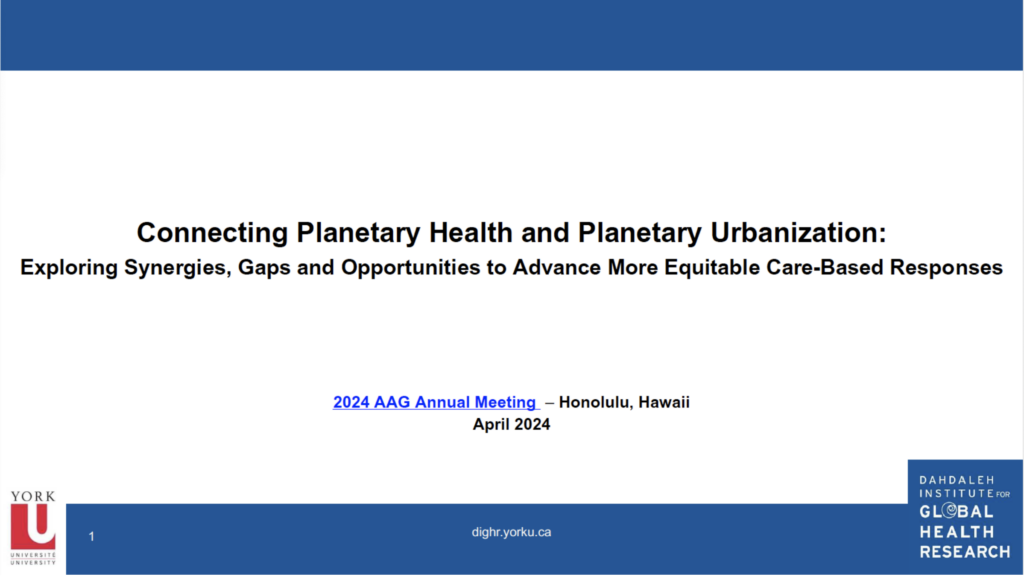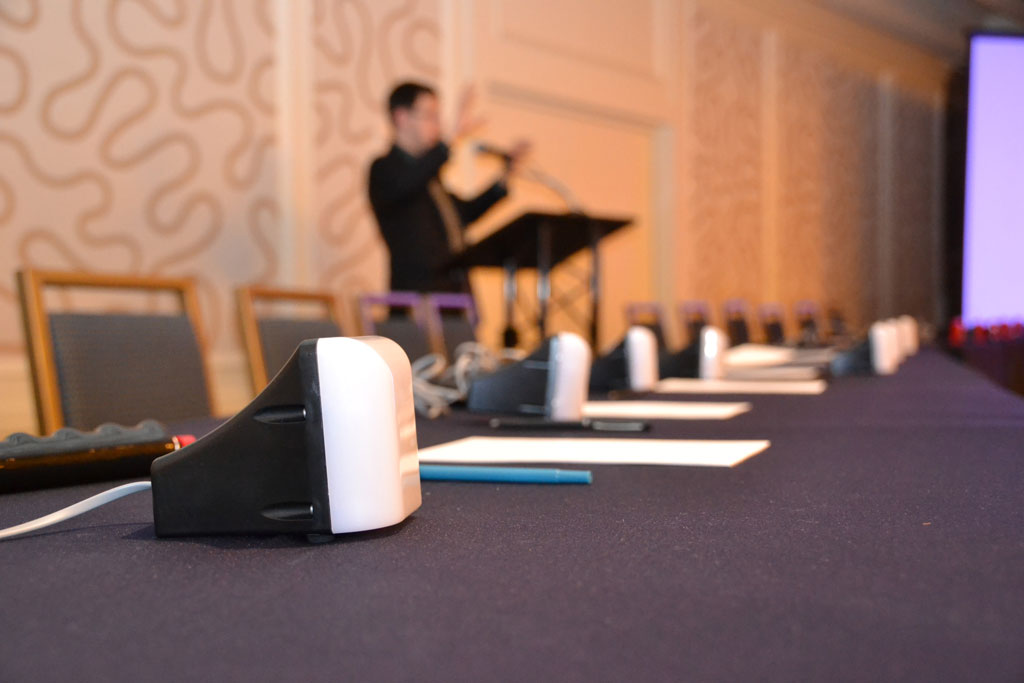Post
Published on September 12, 2024
The Annual Meeting of the American Association of Geographers (AAG) is one of the premiere venues for scholars to discuss the latest research and practice in geography, sustainability, and urban studies. As one of the largest conferences of its kind, the yearly gathering is an opportunity for over 8,500 members of the global geography community to participate in a wide array of in-person and hybrid sessions, workshops, field visits, and lively exchanges.
This year, the Annual Meeting took place in Honolulu, Hawai’i, from April 16-20th. Three overarching themes guided the conversation: reciprocal scholarship; colonialism and resources; and recovery and restoration. To establish stronger connections with the host community, the AAG also hosted a series of virtual learning sessions prior to the Annual Meeting to invite members to learn about Hawaiian perspectives on a broad range of environmental, political, and historical topics, chief among them Indigenous ecological knowledge and sovereignty. The gathering also placed special emphasis on care and equity, with numerous sessions dedicated to their many facets and applications inside and outside of academia.

As scholars with complementary research interests, Raphael Aguiar and Chiara Camponeschi found the themes of this year’s conference particularly relevant to both their individual and collaborative work. Having already found rich ground for collaboration in the interdisciplinary domains that animate their work on the governance of emerging global health threats, they saw the Annual Meeting as an opportunity to connect with like-minded scholars and to highlight the urgent need to bring a planetary health lens to research concerning urbanization in all its facets.
At a time when human activity is pushing ecological limits to a breaking point, with devastating impacts on both human and environmental health, the phenomenon of ‘planetary urbanization’ has opened a crucial debate over how cities and their growth are implicated in the identification, emergence and mitigation of global health threats. At the same time, much remains to be done to more meaningfully connect the two in research and policy alike. Given its standing as a major knowledge hub and critical problem-solving center, Raphael and Chiara saw the Dahdaleh Institute as uniquely positioned to bridge this gap and to facilitate emerging conversations at the intersection of these epistemic domains.
Inspired by new priorities and emerging agendas such as the 2022 Global Report of the Lancet Countdown and the Setting Global Research Priorities for Urban Health report from the WHO, they therefore convened a session titled called Connecting Planetary Health and Planetary Urbanization: Exploring Synergies, Gaps and Opportunities to Advance More Equitable Care-Based Responses.

By bringing together and unpacking concepts that have been animating debates in several scholarly communities, their panel presentations examined how nature-society interdependencies shape the conditions (and produce the vulnerabilities) that enable the emergence and proliferation of systemic threats such as pandemics, antimicrobial resistance, and climate change. Informed by biosocial models of care, the session also offered practical examples of community-based approaches that are more integrative, relational, and power-aware. Dr. Raphael Aguiar, a Postdoctoral Fellow at the DI, opened the session with a context-setting overview that drew on several interpretive frames ranging from urban political ecology to One Health governance to bring attention to several existing gaps, opportunities and synergies between planetary health and planetary urbanization. Dr. Harris Ali, Associate Professor at York’s Department of Sociology and a DI Member, was joined by Dr. Creighton Connelly, Assistant Professor at the University of Hong Kong’s Department of Urban Planning & Design, for a presentation titled “Planetary Urbanization, Infectious Disease and the Epidemiological Triad”. Drawing on their place-based case studies of Ebola and COVID-19, they discussed ways in which processes of extended urbanization are influencing the emergence, spread and containment of infectious diseases. Building on findings introduced in their latest book, Pandemic Urbanism: Infectious Diseases on a Plant of Cities (co-written with DI Member Dr. Roger Keil), they also outlined the key features of the “landscape political ecology” perspective on which the book is premised, placing special emphasis on the ways in which the differential exposure to health hazards and the uneven distribution of risk typical of contemporary urbanization can, and often does, exacerbate social inequalities. Dr. Chiara Camponeschi concluded the session with a presentation on her ‘integrative resilience’ model, focusing on the need for dynamic and expansive understandings of vulnerability, health, and wellbeing to inform the design of more equitable and inclusive interventions in cities and beyond. A lively discussion with panel attendees followed, moderated by Professor Li Zhang of Amherst University’s Department of Environmental Studies. A question about the nuances of One Health, Planetary Urbanization and Planetary Health terminology led to timely reflections about the need to include local and structural determinants of health in One Health approaches as a step toward bringing planetary health and planetary urbanization in a more productive conversation with one another.
Many of these themes and connections found resonance in the ‘Authors Meet Critics’ session devoted to Keil, Harris and Connelly’s book, Pandemic Urbanism. Dr. Chiara Camponeschi joined the conversation as one of the critics, reflecting especially on the mental health and community engagement dimensions of the authors’ analysis of COVID-19, what they refer to as the “first pandemic of the urban century”.
Overall, the session, and the exchange of ideas that followed it, affirmed the timeliness of interdisciplinary collaboration and made evident the ways in which such efforts can lead to fruitful exchanges that create the conditions for responsive problem-solving in and outside academic communities. Looking ahead, they plan to continue their own collaboration at the intersection of planetary health and planetary urbanization alongside their colleague Hillary Birch, and they invite the DI community to follow along and to join the conversation.

Themes | Planetary Health |
Status | Active |
Related Work |
N/A
|
Updates |
N/A
|
People |
Raphael Aguiar, Postdoctoral Research Fellow, Global Health & Humanitarianism and Planetary Health - Active
Chiara Camponeschi, Banting Postdoctoral Research Fellow, Environmental Health - Active |
You may also be interested in...
Recap – Indigenous Perspectives on Planetary Healing
The Dahdaleh Institute for Global Health Research co-hosted a fascinating and insightful gathering on Indigenous Perspectives on Planetary Healing with the Centre for Indigenous Knowledges and Languages in collaboration with CIFAL York. We are grateful to our ...Read more about this Post
Hot off the Press – Digital Technologies and Food Security During Crisis: Covid-19 Experiences from Smallholder Farmers in Odisha, India
Since the COVID-19 pandemic, approximately 150 million people experienced hunger due to food insecurity. Digital agriculture technology determines accurate and specific risks in food production, providing farmers valuable insights to market conditions of a region ...Read more about this Post
Dahdaleh Institute Welcomes Servet Karabag as a Visiting Scholar
The Dahdaleh Institute for Global Health Research is delighted to welcome Professor Servet Karabag as a new member, who joins the Institute as a visiting scholar for one year starting January 2024. Professor Karabag currently ...Read more about this Post
